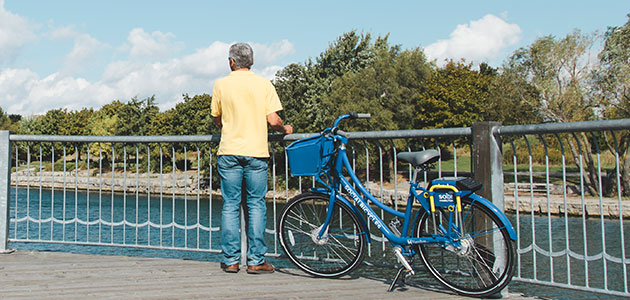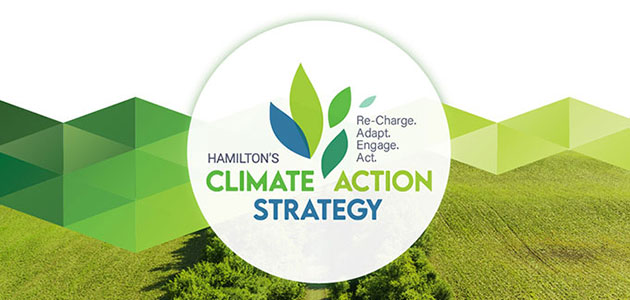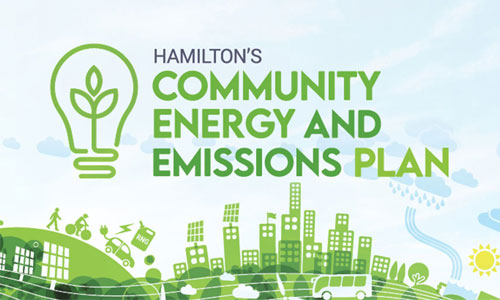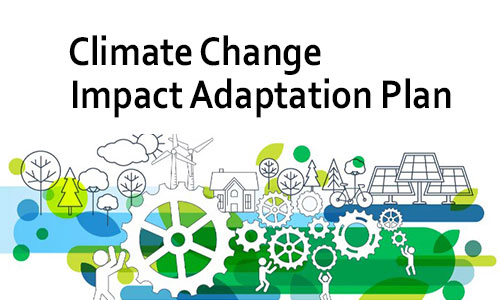
Climate change is a whole-of-society concern. Whether you are an individual, working in your community, or a business, there are climate actions you can take.

The OCCI was established in November 2022 to oversee the implementation of Hamilton’s Climate Action Strategy.
Email [email protected]

A diverse group of Hamiltonians who will play an essential role in advising on and supporting the implementation of Hamilton's Climate Action Strategy.

Hamilton’s Climate Change Reserve
Hamilton’s Climate Change Reserve supports initiatives that advance the City’s climate change goals
We are in a climate emergency. The City of Hamilton is taking immediate action to reduce greenhouse gas emissions that cause climate change, while working on adaptive solutions that helps all residents reduce and prepare for climate impacts.
City to create faster and bolder Climate Action Strategy!
Hamilton City Council has approved a recommendation to update Hamilton’s community-wide Climate Action Strategy to speed up efforts to reduce carbon emissions and better protect the community from extreme weather. Read full media release
Hamilton’s Climate Action Strategy
Hamilton’s Climate Action Strategy is both a City and a community roadmap to net zero greenhouse gas emissions by 2050, with a commitment to getting there in an equitable way, and that leaves no one behind. Learn about how we are getting to net zero carbon by 2050, and what we can all do to prepare for a changing climate.
Hamilton’s Climate Action Strategy advances the City’s response to the Climate Change Emergency Declaration and consists of two plans:
Programs & Initiatives
The Office of Climate Change Initiatives (OCCI) is developing these frameworks and policies:
Carbon Budget and Accounting Framework - OCCI Staff is developing a Carbon Budget and Accounting Framework that systematically integrates climate action policies, including a green procurement policy and carbon credit policy, and develops the tools and resources necessary to implement robust GHG emission calculations into existing budget reporting processes and templates, that align with the global fair share carbon budget to keep global warming well below 2°C and ideally to within 1.5°C, in accordance with the Paris Agreement. By ensuring accountability and transparency, the carbon budget and approval processes will ultimately save money both for the corporation and the overall community through strategic capital planning for climate action, reduce energy/fuel costs, and future inflationary costs.
Climate Justice Framework - Climate justice is the centering of social justice and equity in our understanding of climate change, including its causes and impacts, and in climate mitigation and adaptation efforts. In the transition to a low-carbon society, the City is committed to advancing three dimensions of climate justice-recognitional, procedural and distributional equity-and building up the resilience of frontline communities. The co-design a Climate Justice Framework will help guide the implementation of Hamilton’s Climate Action Strategy and other climate change-related work across the City of Hamilton. It will support and prioritize the fair, equitable, and inclusive participation of frontline communities in this co-design work, recognizing the agency, lived experience, and valuable knowledge of these historically marginalized communities.
Corporate Net Zero Carbon Standard - Developing a Net Zero GHG and Carbon Standard for all new City of Hamilton facilities is being pursued with the City’s Corporate Facilities and Energy Management Division. The goal is to have a new Net Zero Standard created by early 2026 and a strategy for implementation - including a plan for funding any additional costs associated with constructing buildings in this manner - in place by Q3 2026.
Stay tuned for status updates on these initiatives.
Climate Action Progress
The City is committed to reporting and transparency. Find out about our progress against net zero targets and resilience. The Office of Climate Change Initiatives (OCCI) tracks and monitors the implementation of Hamilton’s Climate Action Strategy (HCAS) and is developing tools and programs to further its goals and objectives.
Annual Reports
An update on the City’s progress with reducing its GHG emissions and efforts to support the broader community to do the same through the creation of actions, policies, plans, and incentives and preparing for the impacts of a changing climate.
2025
- Staff Report Hamilton’s Climate Action Strategy 2025 Annual Update (PED25129)
- Appendix A: Annual Progress Update Report 2025
- Appendix B: Hamilton’s Climate Action Strategy Implementation Update 2025
- Appendix C: Assessment of Accelerated Emissions Reduction Targets
- Appendix D: City of Hamilton’s 2023 Sector-Based Emissions
OCCI Priority Focus Areas
In its first year of operation the Office of Climate Change Initiatives (OCCI) set out five Priority Focus Areas:
- Climate Change Governance & Innovation
- Community Climate Outreach
- Carbon Budgeting
- Green Buildings
- Urban Greening





